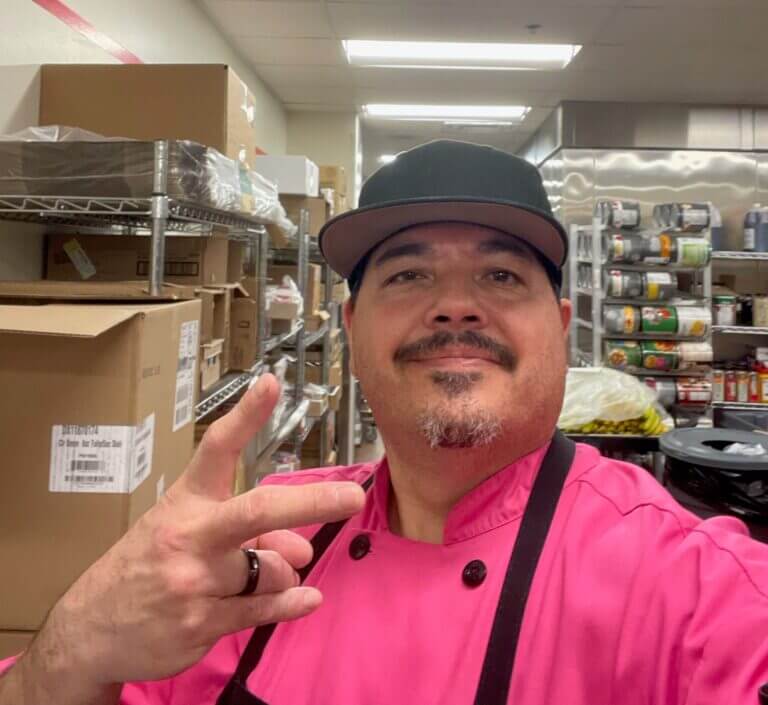“I really learned how to be involved and take care of myself.”
Michael is usually healthy and active, always in motion at his job managing a restaurant and never letting much slow him down. It was a typical busy week for him when he realized a simple skin infection had severely worsened and was going to require medical care. The 51-year-old headed to the emergency room at Mercy Gilbert Medical Center in Gilbert, Arizona where he was admitted for intravenous (IV) antibiotics and further treatment.
The pros of going home for care

“Sitting still is not something that I was used to,” Michael shares. After 3 days in the hospital, he was approached by the Dignity Health Home Recovery Care team about transferring home for the remainder of his treatment, something that he immediately realized would get him up and moving again. “I wasn’t skeptical at all,” he says. “The pros were that I would still get my care, and it would be in the comfort of my own home.”
Through the whole process, Michael explained that everything was easy to understand. “Everyone was very nice, and explained everything so that there were no grey areas. Clarity is very important for me, and they told me everything I needed to know.”
He also recalls that the program was very efficient. “Everything was fast, but it wasn’t overwhelming,” he says. “Another thing that blew my mind was that all the equipment was provided. You don’t have to stress or worry about ‘how am I going to go get this or that,” everything was delivered, and it was delivered promptly.”
Care that goes above and beyond
Although Michael was initially admitted for an infection, his larger medical history played a role in his illness. His diagnosis a few years prior with diabetes meant he was at risk for infections that didn’t heal well, especially since managing his diabetes properly had been a challenge.
Because the Home Recovery Care program addresses the whole patient and considers everything that might interfere with a patient getting better, his nurses provided him with education on his diabetes, too.
“They were really concerned, and very caring and educated,” he says. “That was important for me, because I never really took care of my diabetes, so it was a new experience. I really learned how to be involved and take care of myself.”
Michael says the reason this approach helped him learn was that he received so much personalized, one-on-one attention. “When I got diagnosed, I went to the doctor, I got my prescriptions, I took them religiously, and I didn’t feel better, so I gave up,” he shared. “There wasn’t enough time there to really understand it was serious.”
With Dignity Health’s Home Recovery Care, “You aren’t just going to go home, they’re coming out to monitor you and make sure you know what you’re doing. That’s what I needed.”
A happy ending all around
Not only did he recover from his illness and get back to his normal routine, but he also reconnected with former co-workers at Mercy Gilbert from a time when he had worked there in the past. “All the people that were there that were like my family, all came to see me [when I was sick], and I ended up getting re-hired,” he shared.
Now back working at his old job and in better health, Michael says, “Whoever thought of this, behind the scenes there’s a lot of work put into it. If I were ever to be in that situation again, I would definitely do it again without hesitation.”
